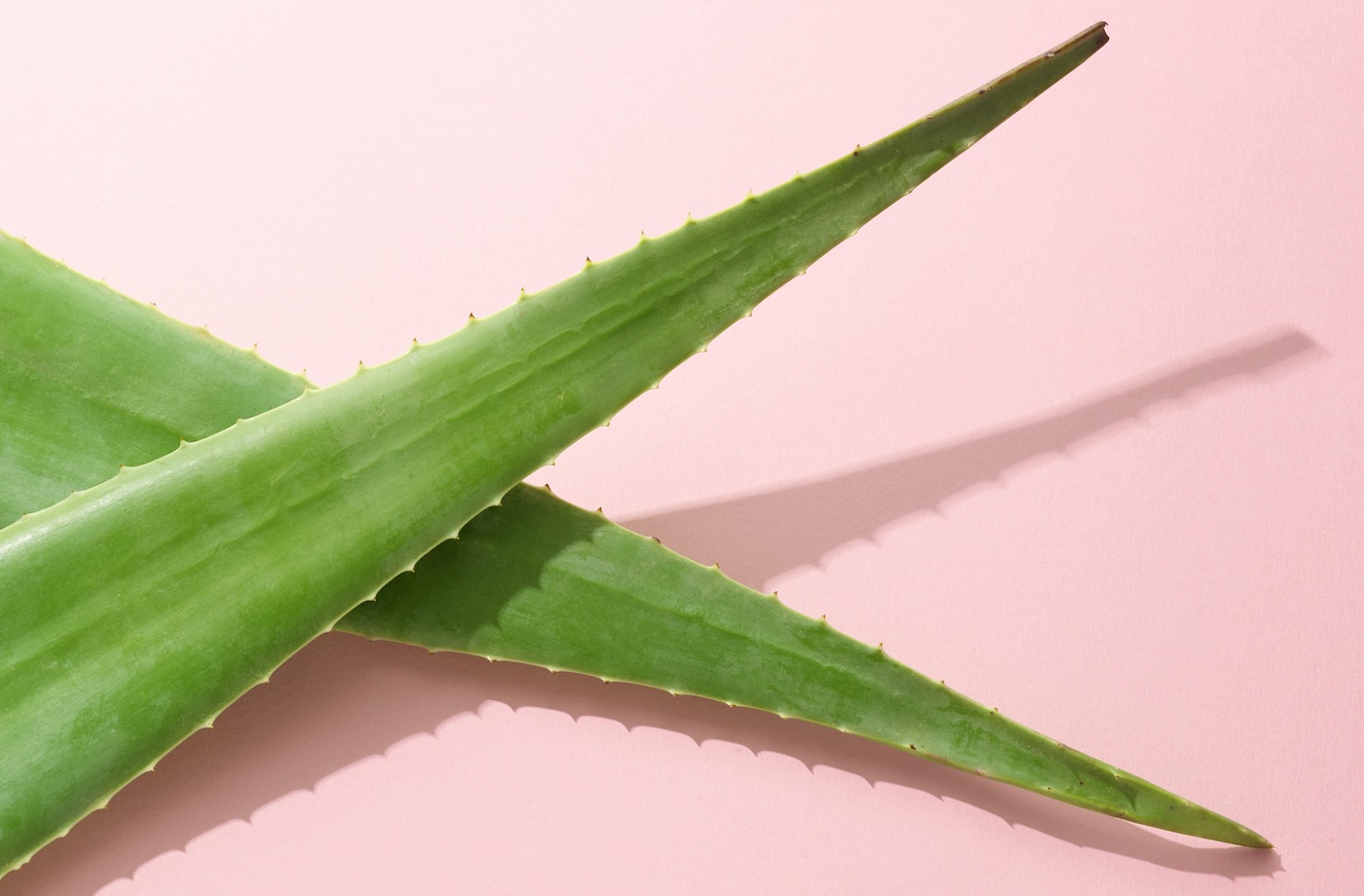
February 29, 2020 at 06:00PM by CWC
When it comes to skin, the aloe vera benefits are no joke. Aloe vera is a natural, plant-based ingredient that’s been used for medicinal purposes for, well, seemingly forever. When you open up the leaves of the succulent plant, you’ll find a clear, jelly-like gel, which is rife with healing properties that are great for treating cuts, healing burns, improving digestive health when consumed, and promoting better oral health, says Gretchen Frieling, MD, a board-certified dermatopathologist.
In other words, aloe vera is definitely worthy of a permanent spot in your medicine cabinet, but it isn’t just there for you in times of minor ailments. It’s also great for your skin, too. You can rub the gel straight from the leaf, and you can find it in many creams, gels, and ointments. Keep reading to learn other ways aloe vera can benefit your skin, plus tips on how to incorporate the star ingredient into your daily skincare routine.
Benefits of aloe vera for skin
Aloe vera is a great moisturizer
Aloe vera gel is incredibly moisturizing for your skin, hair, and scalp. “Aloe vera leaves, particularly in the innermost layer, are abundant with water, so it helps to hydrate the skin and seal in moisture,” Dr. Frieling says. “The sugars it contains, also known as mucopolysaccharides, aid in retaining moisture in the skin.”
ADVERTISEMENT
ADVERTISEMENTKate Spade Autumn/Winter Sale |
Dr. Josh Axe, DNM and founder of Ancient Nutrition and DrAxe.com, adds that aloe gel also promotes the regeneration of skin tissues and removes dead skin cells.
Aloe vera can help to fade dark spots
If you have pesky dark spots, aka hyperpigmentation, aloe vera has your back (er, face). “A compound called aloesin, found in the aloe vera plant, could help to fade dark spots,” Dr. Frieling says. “According to one study, when applied four times per day for 15 days, aloesin was found to be effective in treating UV-induced and post-acne hyperpigmentation.”
Aloe vera has antiviral and antibacterial effects
Rest assured: With aloe vera, you’re well-protected thanks to anthraquinones, a compound found in aloe that boasts antibacterial and antiviral effects. Plus, the fatty acids and enzymes present in aloe vera gel help to reduce inflammation, Dr. Axe says. “These properties support aloe vera’s ability to fight skin infections, like cold sores, when applied topically.”
Aloe vera can heal burns
Studies have shown aloe vera is an effective way to heal first and second-degree burns, Dr. Axe says, hence why it’s often an ingredient in over-the-counter medications for skin burns. “It works through its anti-inflammatory properties, promotes circulation, and prevents bacteria growth,” Dr. Frieling says.
Aloe vera can help treat acne
“Aloe vera is a natural source of salicylic acids, which can assist with flare-ups of blackheads and whiteheads,” Dr. Frieling says. One study showed that aloe vera topical gel, in combination with acne cream medication tretinoin, was significantly more effective at treating inflammatory and non-inflammatory acne than tretinoin on its own.
Aloe vera can help with chronic skin conditions
Aloe gel is also great for managing skin conditions such as psoriasis, eczema, and dermatitis, which cause inflammation and weaken the skin barrier, making the skin more susceptible to bacterial and fungal infections, Dr. Frieling says.
“Aloe vera is rich in antioxidant vitamins and enzymes that help to reduce inflammation and promote skin healing,” Dr. Axe says. So, if you struggle with the above skin conditions, it might be worthwhile to incorporate aloe vera into your regular skincare routine.
Aloe vera can help support healthy aging
In case you weren’t already sold on the skin benefits of aloe vera, here’s one that will seal the deal: youthful skin. “Aloe vera is packed with antioxidants that reduce free radical damage, fight inflammation, and naturally slow the aging of cells,” Dr. Axe says. “Using plants rich in antioxidants on your skin can promote healthy aging by nourishing the skin and reserving signs of skin damage.”
How to choose the right aloe vera gel
You can find aloe vera products that come as a gel form at most drug stores. When shopping for aloe vera, Dr. Axe recommends opting for one that’s made by a reputable company with a certification from the International Aloe Science Council. “This will confirm that the product is the best quality aloe vera and use the most beneficial processing methods,” he says.
Alternatively, if you fancy yourself having a green thumb, Dr. Axe says growing your own aloe vera plant is also an option. Then, all you have to do is open the leaves and scoop the aloe vera gel out.
4 ways to incorporate aloe vera into your skincare routine
Make a DIY nighttime face mask
No need to drop your paycheck on fancy face masks (unless, of course, that’s your thing), you can make a DIY nighttime mask with aloe vera. “Let your skin soak up all the nutrients in aloe vera and wake up the next morning to find your skin rejuvenated and glowing,” Dr. Frieling says.
Use it as a makeup remover
Are you looking for a natural makeup remover? Give aloe vera a shot. “Aloe vera has moisturizing properties that allow makeup to come off quickly and smoothly,” Dr. Frieling says.
ADVERTISEMENT
ADVERTISEMENTSports Direct Free Delivery on All Orders! |
Find products with aloe vera featured
If you can’t get your hands on pure aloe vera gel, stock up on products that already have the ingredient in it. “You’ll find aloe vera in skin lotions, body washes, face masks, youth serums, tubes of toothpaste, shampoos, conditioners, and hair masks,” Dr. Frieling says.
Ready to move on to phase two? Here’s how aloe vera can make your hair healthy and shiny. Plus, how the wonder plant can aid in digestion.
Author Jessica Estrada | Well and Good
Selected by CWC

ADVERTISEMENT
ADVERTISEMENTUp to 30% off Gift Sets |







